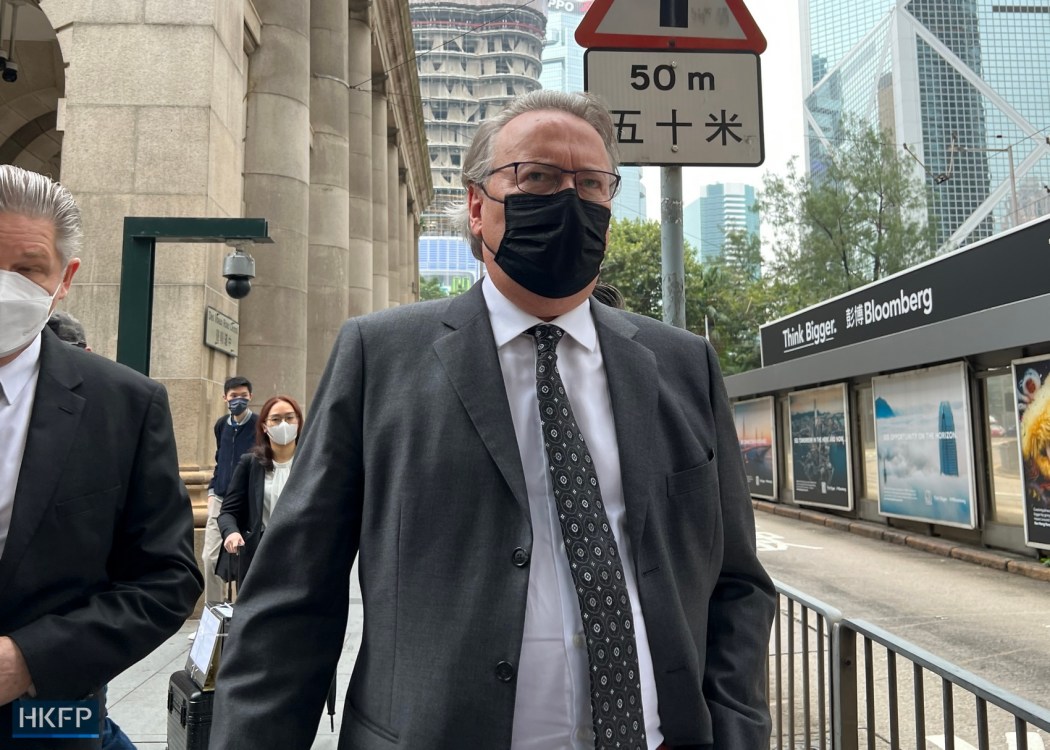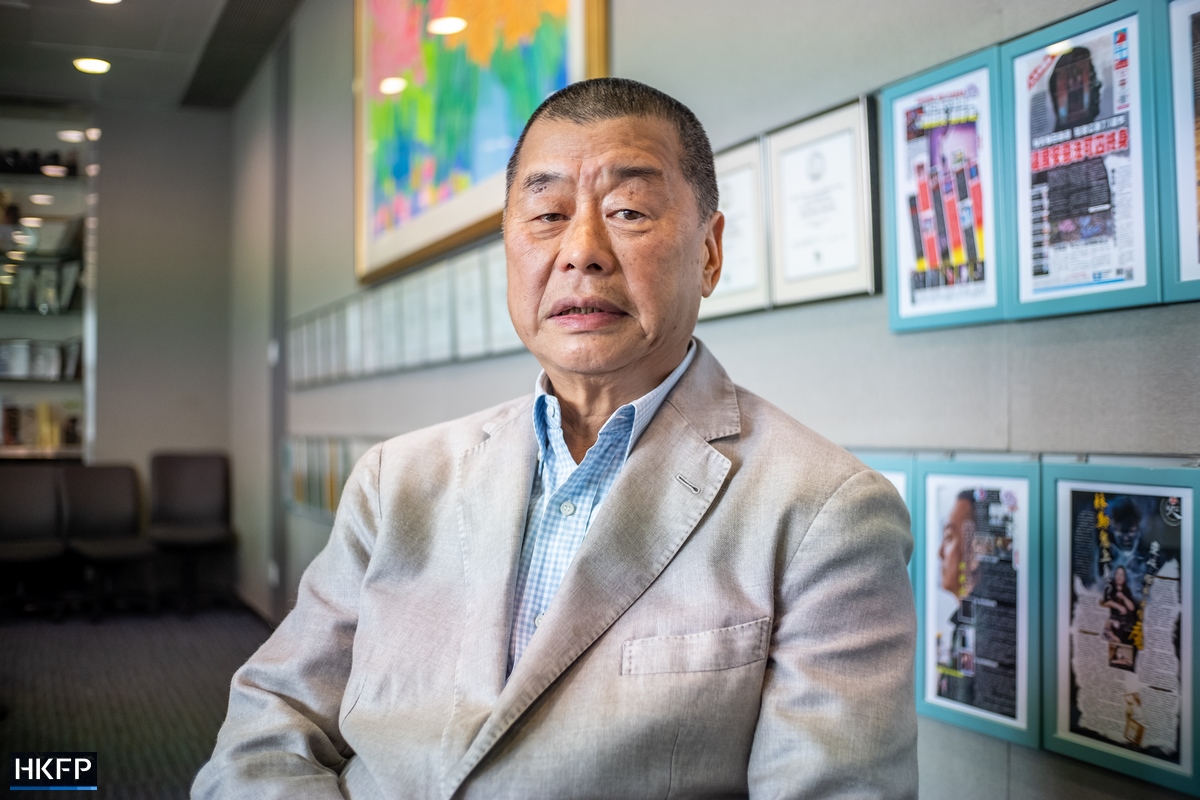A committee on safeguarding national security in Hong Kong has urged the city’s government to change the law as quickly as possible so it can ban a British lawyer from representing former pro-democracy media tycoon Jimmy Lai at his security trial.
The Committee for Safeguarding National Security said after a meeting on Wednesday night that it “supports the HKSAR Government to introduce amendments to the Legal Practitioners Ordinance as soon as possible.”

The meeting was the first since the top decision-making body of China’s legislature issued an interpretation last month of the national security law, which was imposed by Beijing on Hong Kong in June 2020 and provides for maximum penalties of life imprisonment.
The committee is headed by Chief Executive John Lee and members include Chief Secretary for Administration Eric Chan, Secretary for Justice Paul Lam, Secretary for Security Chris Tang, and police chief Raymond Siu.
The debate over foreign lawyers arose after Lai sought to hire British King’s Counsel Timothy Owen to represent him in his now-adjourned national security trial involving alleged collusion with foreign forces.
The High Court approved Owen’s admission in October last year but the justice minister lodged a total of four objections, all of which were dismissed by the High Court or the Court of Final Appeal.
Following the Court of Final Appeal’s ruling in November, Lee invited Beijing to issue a legislative interpretation of the security legislation – the first since the sweeping law was enacted.

The Standing Committee of the National People’s Congress (NPCSC) approved the interpretation on December 30 last year.
It did not rule directly on whether overseas counsel should be allowed to take part in national security cases, but said the chief executive and the national security committee had the final say in the matter. A decision by the security committee would be binding on all Hong Kong courts, and could not be challenged by judicial reviews.
Timeline of debate over admission of Timothy Owen (Click to expand):
- September 30: Senior Counsel Robert Pang revealed in a case management hearing that the Department of Justice (DoJ) and Bar Council opposed Lai’s bid to hire Owen.
- October 19: High Court Judge Jeremy Poon granted an application to admit Owen as Lai’s counsel.
- October 27: Senior Counsel Benjamin Yu filed an appeal against the admission of Owen on behalf of the DoJ to the Court of Appeal.
- November 9: A panel of three judges in the Court of Appeal ruled against the DoJ’s appeal.
- November 15: The DoJ told HKFP that it had filed an application to the Court of Appeal for leave to appeal against Owen’s admission at the Court of Final Appeal.
- November 21: The Court of Appeal rejected the DoJ’s application for leave to appeal, filed by ex-justice secretary Rimsky Yuen.
- November 22: The DoJ files final appeal attempt to the top court.
- November 28, 4 p.m.: The Court of Final Appeal dismissed the DoJ’s application for leave to appeal.
- November 28, 6:45 p.m.: Chief Executive John Lee held a press conference announcing that he would invite Beijing to intervene.
- November 29: The DoJ applied to adjourn the trial.
- December 1: First day of trial against Lai, the Court of First Instance adjourned the case to December 13 as per prosecution’s request.
- December 13: Trial against Lai adjourned again to September 25, 2023.
- December 30: NPCSC passed legislative interpretation on the national security law.
The trial against Lai began on December 1 but was adjourned on its first day. The proceedings were eventually adjourned to September 25 pending Beijing’s decision.

Lai, now 75, has been in detention since December 2020. Last month he was sentenced to five years and nine months in prison for fraud involving a breach of the lease for the headquarters of his now-closed tabloid Apple Daily. He was previously handed a 20-month jail term for several protest-related charges.
In his upcoming trial Lai is accused of two counts of conspiracy to collude with foreign forces and one count of collusion with foreign forces, in breach of the national security law. He also faces one charge under the colonial-era sedition law over allegedly seditious publications.
The national security committee, in its Wednesday statement, vowed to “fulfil the obligations as stipulated in the contents of the interpretation by the NPCSC,” and carry out duties including “making work plans, and formulating policies for safeguarding national security” in Hong Kong, and “advancing the development of the legal system and enforcement mechanisms of the HKSAR for safeguarding national security.”
Support HKFP | Policies & Ethics | Error/typo? | Contact Us | Newsletter | Transparency & Annual Report | Apps
Help safeguard press freedom & keep HKFP free for all readers by supporting our team
























